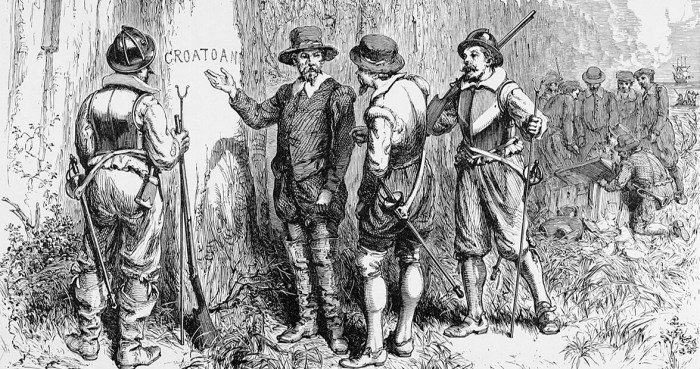Delving into the enigmatic realm of the lost colony worksheet answers, we embark on a captivating journey through history’s greatest unsolved mysteries. The Roanoke Colony, established in the 16th century, vanished without a trace, leaving behind a legacy of speculation and intrigue.
As we unravel the various theories and archaeological evidence surrounding the colony’s fate, we’ll explore the cultural and historical factors that may have influenced its disappearance. From Native American interactions to European exploration, the search for answers continues to captivate historians and scholars alike.
The Lost Colony of Roanoke: The Lost Colony Worksheet Answers

The Roanoke Colony, established in 1585 on Roanoke Island, North Carolina, stands as a captivating enigma in American history. Its disappearance without a trace has fueled centuries of speculation and theories.
The Roanoke Colony Background, The lost colony worksheet answers
The colony was founded by Sir Walter Raleigh as part of his ambitious plan to establish a permanent English settlement in North America. The colonists faced numerous challenges, including conflicts with Native American tribes, disease, and a harsh environment.
In 1590, Governor John White returned to England for supplies, leaving behind a small group of colonists. Upon his return three years later, he found the colony abandoned, with only the word “CROATOAN” carved into a post.
Theories about the Colony’s Fate
Numerous theories have been proposed to explain the disappearance of the Roanoke Colony:
- Assimilation with Native American tribes:Some believe the colonists integrated into nearby Native American communities.
- Attack by Native Americans:Others suggest the colony was wiped out by hostile Native American tribes.
- Disease:Diseases brought by the Europeans could have decimated the colony.
- Famine:Crop failures or conflicts with Native Americans could have led to starvation.
li> Return to England:A few historians argue the colonists abandoned Roanoke and returned to England.
Archaeological Evidence
Archaeological excavations at the Roanoke Colony site have yielded significant findings:
- Post molds:The remains of wooden posts suggest the presence of buildings and structures.
- Artifacts:Tools, weapons, and other artifacts provide clues to the colonists’ daily life.
- DNA analysis:Studies of Native American populations have found possible genetic links to the colonists.
Cultural and Historical Context
The Roanoke Colony’s fate was influenced by various factors:
- Relations with Native Americans:The colonists’ interactions with nearby tribes ranged from friendly to hostile.
- European exploration:Competing European powers sought to establish colonies in North America.
- Political conflicts:Tensions between England and Spain contributed to the colony’s vulnerability.
Impact and Legacy
The disappearance of the Roanoke Colony has had a lasting impact:
- American history:It remains a mystery that continues to fascinate historians and the public.
- Cultural legacy:The colony has inspired numerous books, films, and other cultural works.
- Scientific research:The mystery has spurred ongoing scientific research to unravel the colony’s fate.
Unresolved Questions and Future Research
Despite extensive research, the mystery of the Roanoke Colony remains unresolved. Future research may focus on:
- Further archaeological excavations:Additional excavations could yield new insights into the colony’s daily life and fate.
- DNA analysis:Genetic studies of Native American populations could provide further evidence of assimilation.
- Historical research:Examination of European and Native American records may shed light on the colony’s interactions.
FAQ Guide
What is the most widely accepted theory about the fate of the Roanoke Colony?
The most widely accepted theory is that the colonists assimilated into nearby Native American tribes.
What archaeological evidence supports the theory that the colonists assimilated into Native American tribes?
Archaeological evidence includes the discovery of European artifacts in Native American villages and the presence of Native American pottery at the Roanoke Colony site.
What is the significance of the Roanoke Colony’s disappearance?
The Roanoke Colony’s disappearance is significant because it represents one of the most enduring mysteries in American history and has inspired countless works of literature, art, and scientific investigation.
